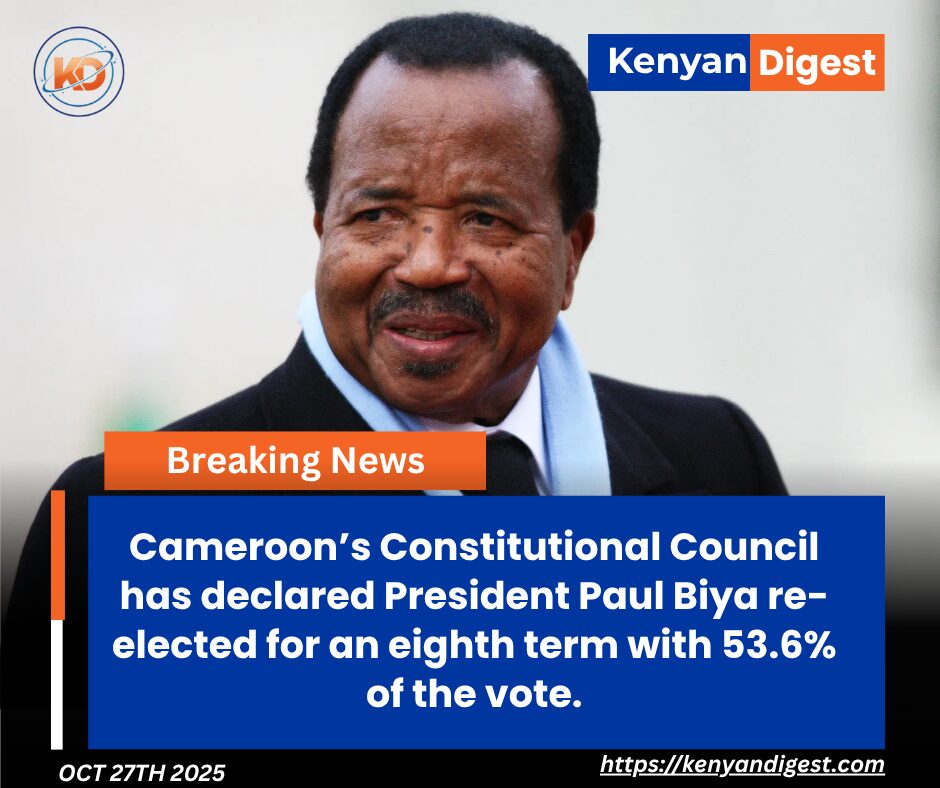Cameroon’s Constitutional Council has officially declared Paul Biya, aged 92, as the winner of the country’s 2025 presidential election with 53.6 percent of the vote. His victory secures an eighth term in office and extends his presidency until 2032, marking over five decades of continuous leadership since he first assumed power in 1982.
For many observers, Biya’s continued hold on power is both historic and symbolic. It represents one of the longest-running presidencies in modern political history, but it also raises pressing questions about leadership renewal, institutional strength, and democratic sustainability in Africa.

Cameroon’s Paul Biya Re-Elected for Eighth Term at 92
The Leadership Paradox
President Biya’s rule highlights a paradox familiar in many developing democracies: the balance between political stability and generational change. Under his administration, Cameroon has enjoyed relative continuity, but it has also faced growing criticism over governance, economic inequality, and limited civic freedoms.
While his supporters praise his ability to maintain order and steer the country through challenging regional conflicts, critics argue that long-term leadership without clear succession plans often stifles innovation and limits democratic participation.
Institutional Legacy and Economic Implications
From a leadership perspective, Biya’s re-election reflects a deeply entrenched political system shaped around personality rather than policy. For businesses and investors, this continuity offers predictability but also underscores the need for structural reforms.
Cameroon’s future economic growth depends on empowering new leaders, fostering institutional transparency, and embracing inclusive governance.
A Lesson in Leadership Transition
For Africa’s emerging leaders, Biya’s extended rule is both a warning and a lesson. Longevity in office can project strength, but true leadership lies in building systems that outlive an individual. Succession planning, institutional trust, and visionary governance remain the pillars of sustainable progress.
As Cameroon moves into another seven-year term under President Biya, the global community will be watching closely not only to see how the nation navigates its political future but also to reflect on how leadership endurance should evolve in the modern era.

 Politics1 week ago
Politics1 week ago
 Entertainment1 week ago
Entertainment1 week ago
 Business News1 week ago
Business News1 week ago
 Business News38 minutes ago
Business News38 minutes ago






